
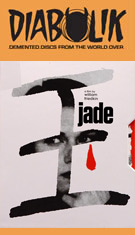

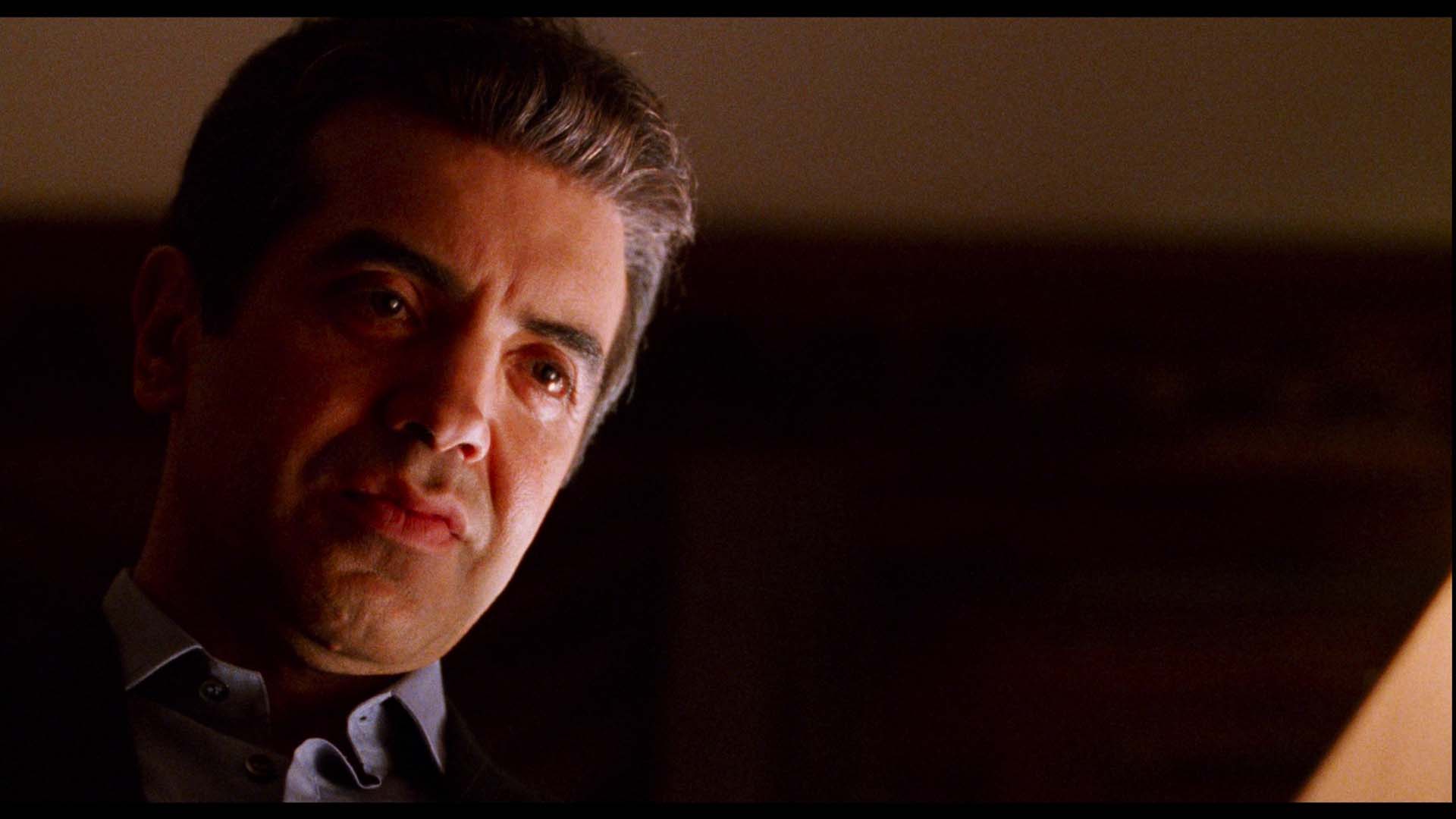 screenwriting superstar out of Joe Eszterhas, whose record-breaking payday catapulted him ahead of previous titans like Shane Black. In the process, Eszterhas continued to
screenwriting superstar out of Joe Eszterhas, whose record-breaking payday catapulted him ahead of previous titans like Shane Black. In the process, Eszterhas continued to 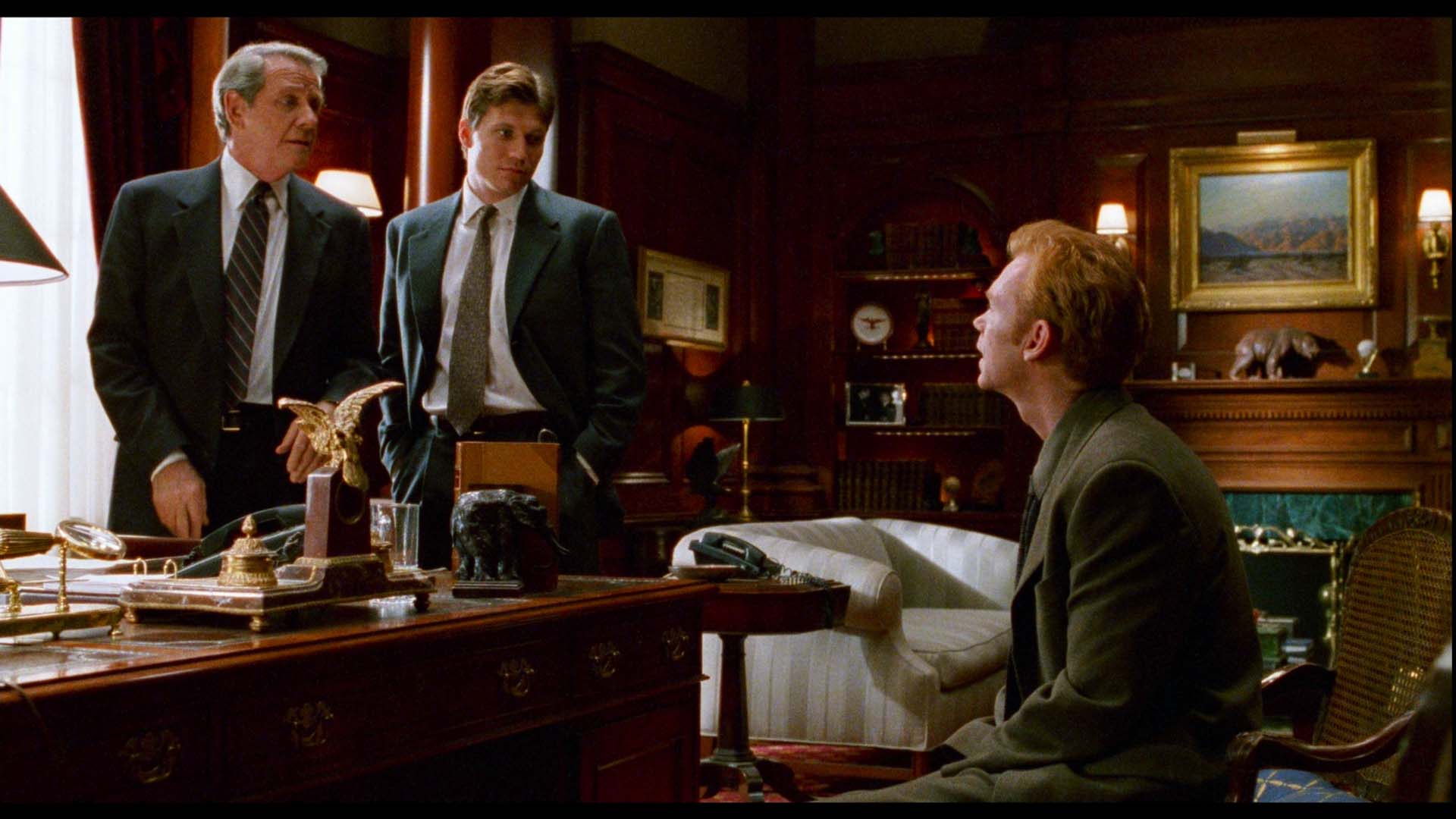 recycle his two favorite script formulas; the first was the emotionally volatile young working girl who just wants to dance and breaks into inexplicable outbursts, seen in Flashdance and then Showgirls. Then we have his thriller plot involving the high-profile murder of someone wealthy, with the investigating party torn between two suspects and stupidly becoming romantically entangled with the most likely one. Audiences first encountered Eszterhas' take on this idea with 1985's Jagged Edge, but Basic Instinct turned it into a smash concept that was quickly imitated by numerous direct-to-VHS sizzlers that filled up racks in rated and unrated versions. Studios followed suit, with Eszterhas himself remixing it for 1993's Sliver and then again in 1995's Jade, part of a run of titles directed by William Friedkin for Paramount (along with Blue Chips, Rules of Engagement, and The Hunted) when it was run by his wife, Sherry Lansing. The film became an instant target for critics and underperformed at the box office, with the biggest reasons being erotic thriller burnout and the perceived hubris of star David Caruso who had abruptly ditched his star-making role on NYPD Blue for a shot at leading man status with this film and the same year's Kiss of Death. As with most of Friedkin's work from this
recycle his two favorite script formulas; the first was the emotionally volatile young working girl who just wants to dance and breaks into inexplicable outbursts, seen in Flashdance and then Showgirls. Then we have his thriller plot involving the high-profile murder of someone wealthy, with the investigating party torn between two suspects and stupidly becoming romantically entangled with the most likely one. Audiences first encountered Eszterhas' take on this idea with 1985's Jagged Edge, but Basic Instinct turned it into a smash concept that was quickly imitated by numerous direct-to-VHS sizzlers that filled up racks in rated and unrated versions. Studios followed suit, with Eszterhas himself remixing it for 1993's Sliver and then again in 1995's Jade, part of a run of titles directed by William Friedkin for Paramount (along with Blue Chips, Rules of Engagement, and The Hunted) when it was run by his wife, Sherry Lansing. The film became an instant target for critics and underperformed at the box office, with the biggest reasons being erotic thriller burnout and the perceived hubris of star David Caruso who had abruptly ditched his star-making role on NYPD Blue for a shot at leading man status with this film and the same year's Kiss of Death. As with most of Friedkin's work from this 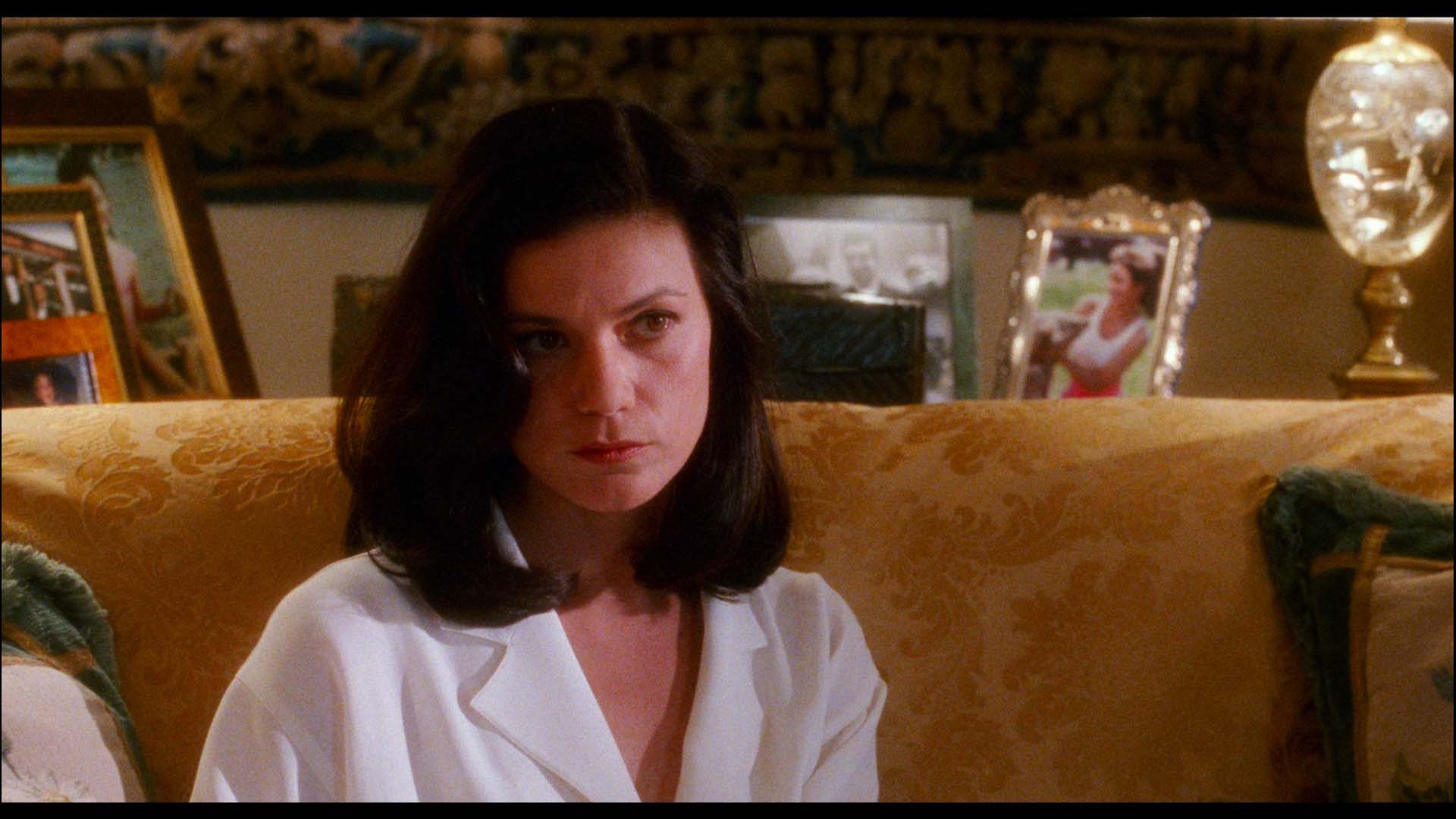 period, the film has since undergone some significant reappraisal and has more than its share of admirers now, particularly for its extended director's cut that was only available on VHS for decades.
period, the film has since undergone some significant reappraisal and has more than its share of admirers now, particularly for its extended director's cut that was only available on VHS for decades.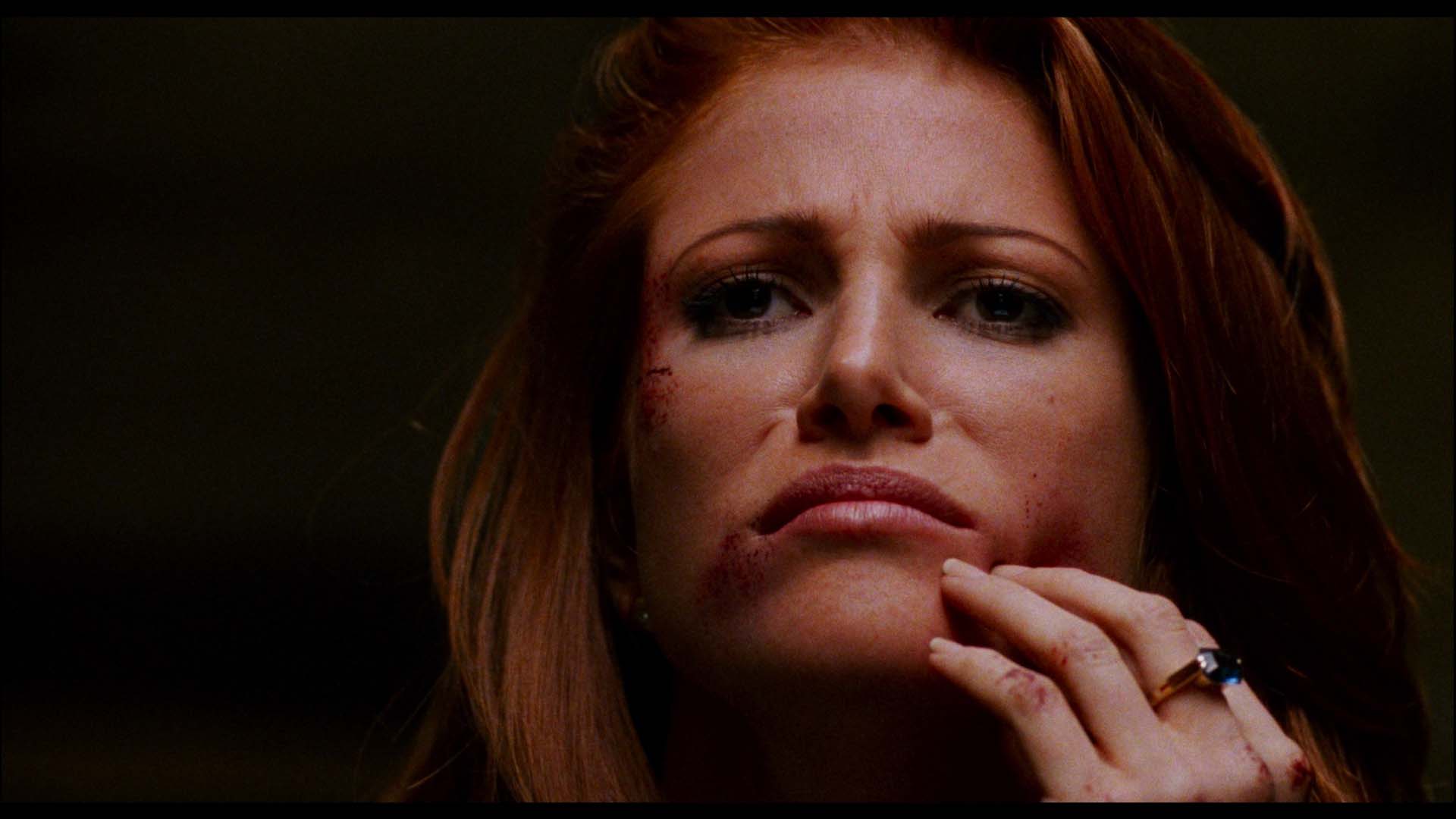 covert prostitution ring in the area connected to the Governor and other major public figures. The Assistant District Attorney, David Corelli (Caruso), is present at the scene along with the investigating officers and learns that one of the women involved could be his ex-girlfriend, Katrina (Fiorentino), a psychologist now married to defense attorney Matt Gavin (Palmintieri). When the one solid witness (Everhart) is murdered in front of him, Corelli doubles down and resolves to find the killer while unraveling the criminal operation with ties across the city.
covert prostitution ring in the area connected to the Governor and other major public figures. The Assistant District Attorney, David Corelli (Caruso), is present at the scene along with the investigating officers and learns that one of the women involved could be his ex-girlfriend, Katrina (Fiorentino), a psychologist now married to defense attorney Matt Gavin (Palmintieri). When the one solid witness (Everhart) is murdered in front of him, Corelli doubles down and resolves to find the killer while unraveling the criminal operation with ties across the city.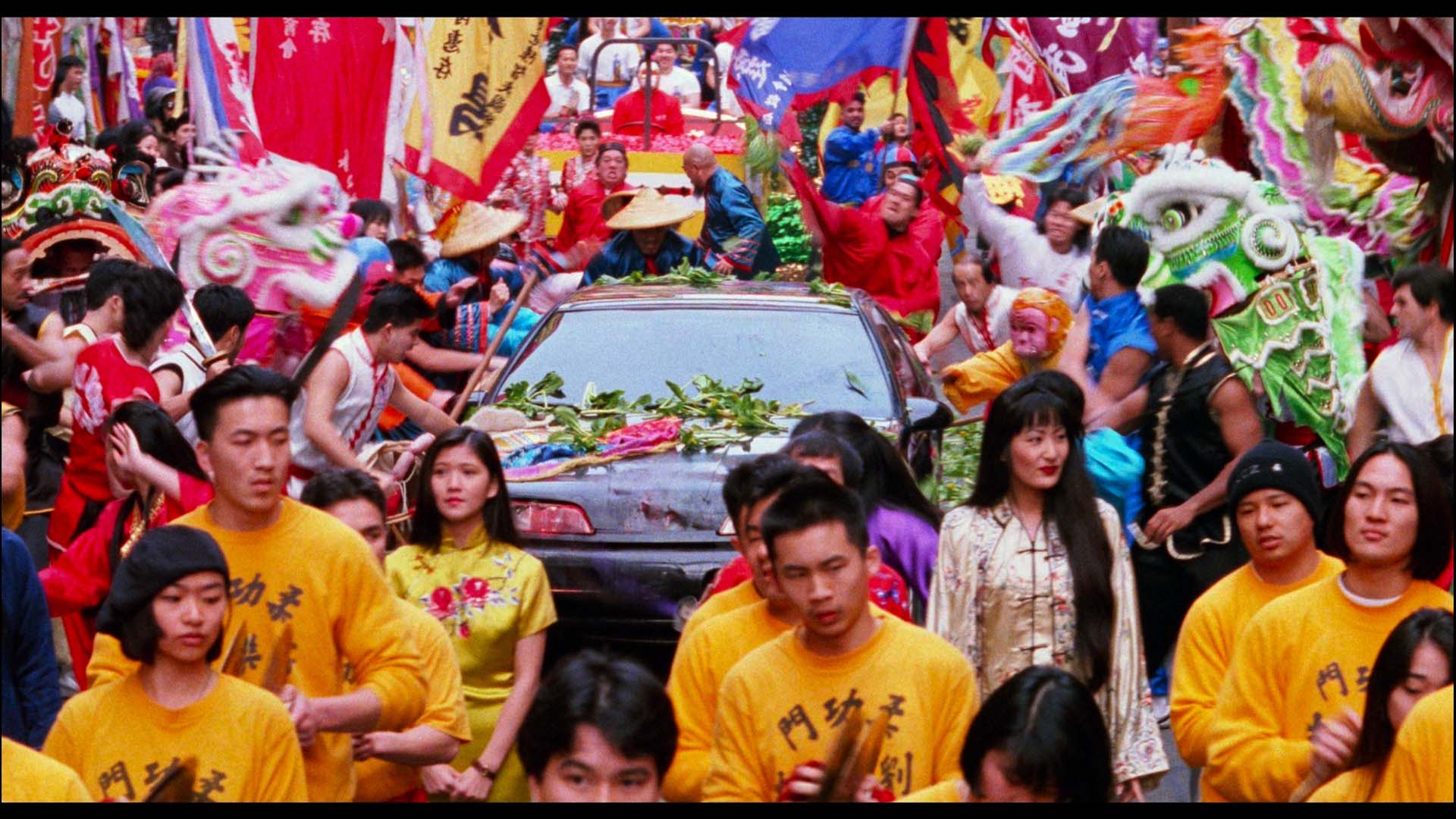 adds some of the spicier flashes seen in the international cut while also adding more plot and an extended
adds some of the spicier flashes seen in the international cut while also adding more plot and an extended 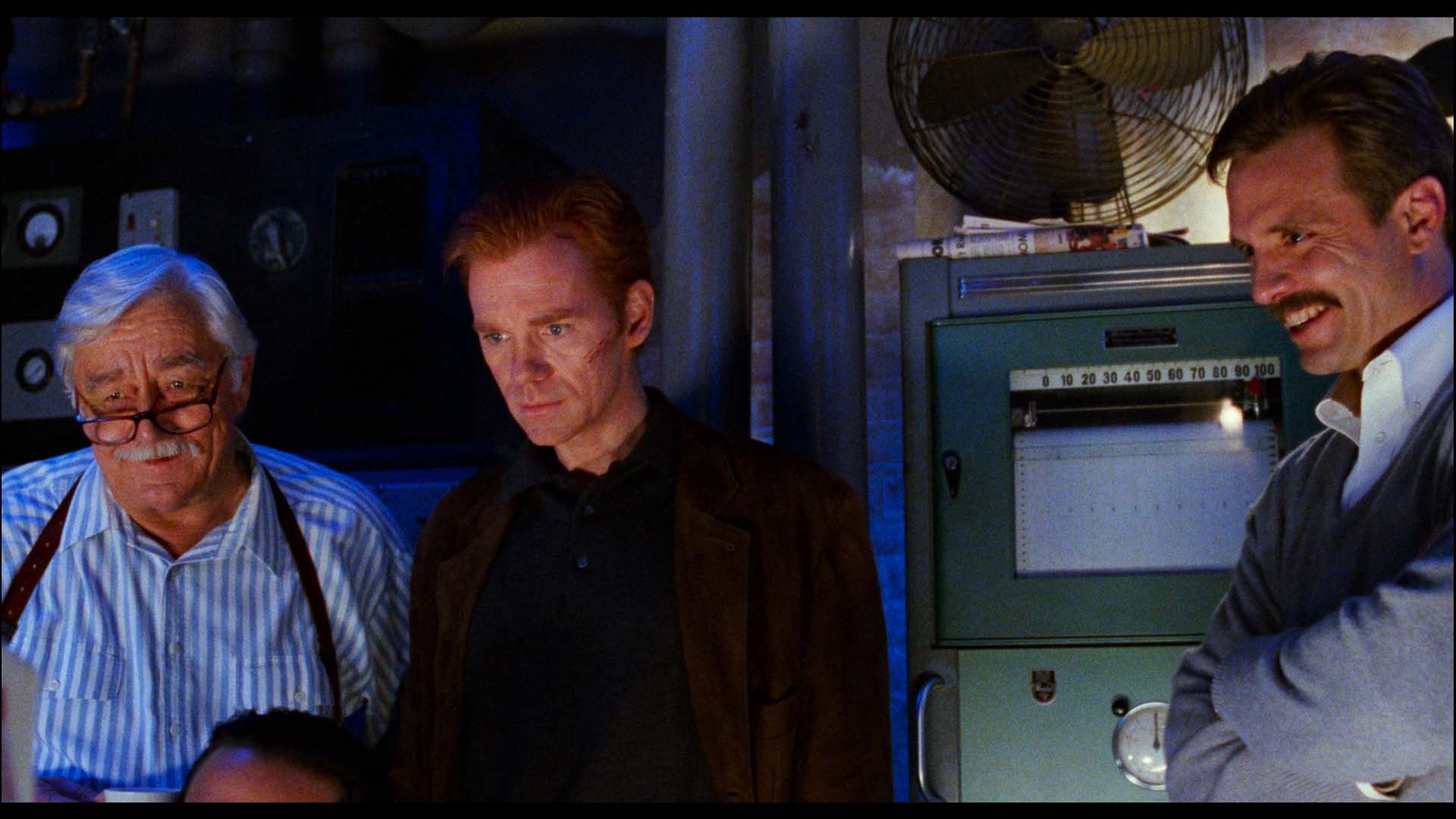 ending) helped to clarify a film that had some scratching their heads when it came out. It's also notable for its extremely odd cast, with supporting thespians here including Richard Crenna, Kevin Tighe, Victor Wong, Michael Biehn, and -- perhaps most weirdly -- Broadway legend Donna Murphy in her movie debut as one of the cops.
ending) helped to clarify a film that had some scratching their heads when it came out. It's also notable for its extremely odd cast, with supporting thespians here including Richard Crenna, Kevin Tighe, Victor Wong, Michael Biehn, and -- perhaps most weirdly -- Broadway legend Donna Murphy in her movie debut as one of the cops.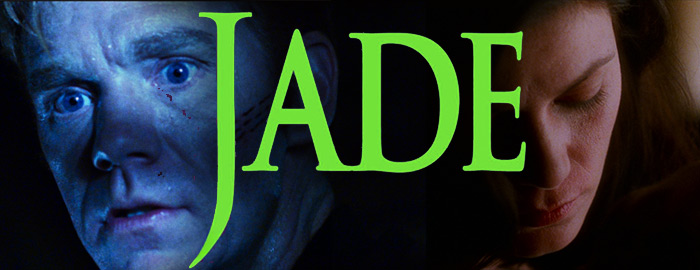 much more vivid and rich appearance than it had in theaters, with an opening disclaimer noting that the color timing here is
much more vivid and rich appearance than it had in theaters, with an opening disclaimer noting that the color timing here is 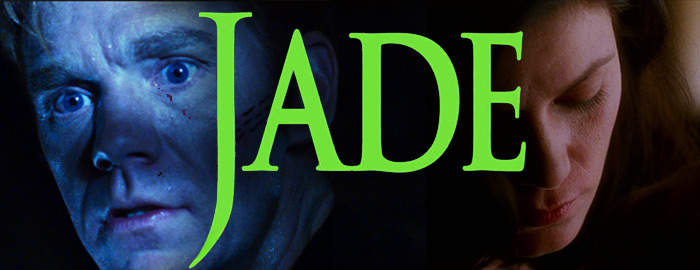 in accordance with Friedkin's intentions rather than the rushed and flawed look seen upon its release. It's really gorgeous, and the DTS-HD MA English 5.1 track sounds great with that sinister score really enveloping you. Optional English SDH subtitles are provided, and the theatrical cut also comes with a new audio commentary by Jennifer Moorman who starts off by pointing out an understandable issue with the film's tagline and then does an adept job of covering the film's production history, themes within the director and writer's larger body of work, and the tropes of '90s cinema being used and subverted here with commentary about capitalism and corruption throughout. In "Eszterhas, Friedkin and Jade" (7m2s), the screenwriter gives his take on the experience from giving a treatment to Jerry Weintraub through moving into the hands of producer Robert Evans and the issues he had with Friedkin's execution of the film including the wholesale overhaul of the ending. In "Hysterical Blindness: William Friedkin at Paramount" (22m7s), editor Augie Hess and assistant editor Darrin Navarro look back at working with the director during this period when cordiality and difficulty seemed to walk hand in hand on Blue Chips onward even with the most advanced studio tech at their hands. Finally you get the original trailer (in SD) and an archival Friedkin interview with Charlie Rose (12m58s) covering highlights from the filmmaker's career while plugging the release of this film. The limited edition also comes with a 40-page book featuring essays by Marya E. Gates ("Everyone Has Their Own Fantasy"), Juan Barquin, ("Welcome to the Fuckhouse"), Charles Bramesco ("Everybody Makes the Same Mistakes: The Erotic Thriller as Couples' Counseling"), and Justin LaLiberty ("Serve It Up Raw: Sex and Violence in the Films of William Friedkin"), which are all worth reading (though be warned some of the white-on-salmon type is very hard on the eyes!) with analyses of the sexual dynamics, the differences between script and film, the role of deception in marital relationships, and much more.
in accordance with Friedkin's intentions rather than the rushed and flawed look seen upon its release. It's really gorgeous, and the DTS-HD MA English 5.1 track sounds great with that sinister score really enveloping you. Optional English SDH subtitles are provided, and the theatrical cut also comes with a new audio commentary by Jennifer Moorman who starts off by pointing out an understandable issue with the film's tagline and then does an adept job of covering the film's production history, themes within the director and writer's larger body of work, and the tropes of '90s cinema being used and subverted here with commentary about capitalism and corruption throughout. In "Eszterhas, Friedkin and Jade" (7m2s), the screenwriter gives his take on the experience from giving a treatment to Jerry Weintraub through moving into the hands of producer Robert Evans and the issues he had with Friedkin's execution of the film including the wholesale overhaul of the ending. In "Hysterical Blindness: William Friedkin at Paramount" (22m7s), editor Augie Hess and assistant editor Darrin Navarro look back at working with the director during this period when cordiality and difficulty seemed to walk hand in hand on Blue Chips onward even with the most advanced studio tech at their hands. Finally you get the original trailer (in SD) and an archival Friedkin interview with Charlie Rose (12m58s) covering highlights from the filmmaker's career while plugging the release of this film. The limited edition also comes with a 40-page book featuring essays by Marya E. Gates ("Everyone Has Their Own Fantasy"), Juan Barquin, ("Welcome to the Fuckhouse"), Charles Bramesco ("Everybody Makes the Same Mistakes: The Erotic Thriller as Couples' Counseling"), and Justin LaLiberty ("Serve It Up Raw: Sex and Violence in the Films of William Friedkin"), which are all worth reading (though be warned some of the white-on-salmon type is very hard on the eyes!) with analyses of the sexual dynamics, the differences between script and film, the role of deception in marital relationships, and much more. ![]()